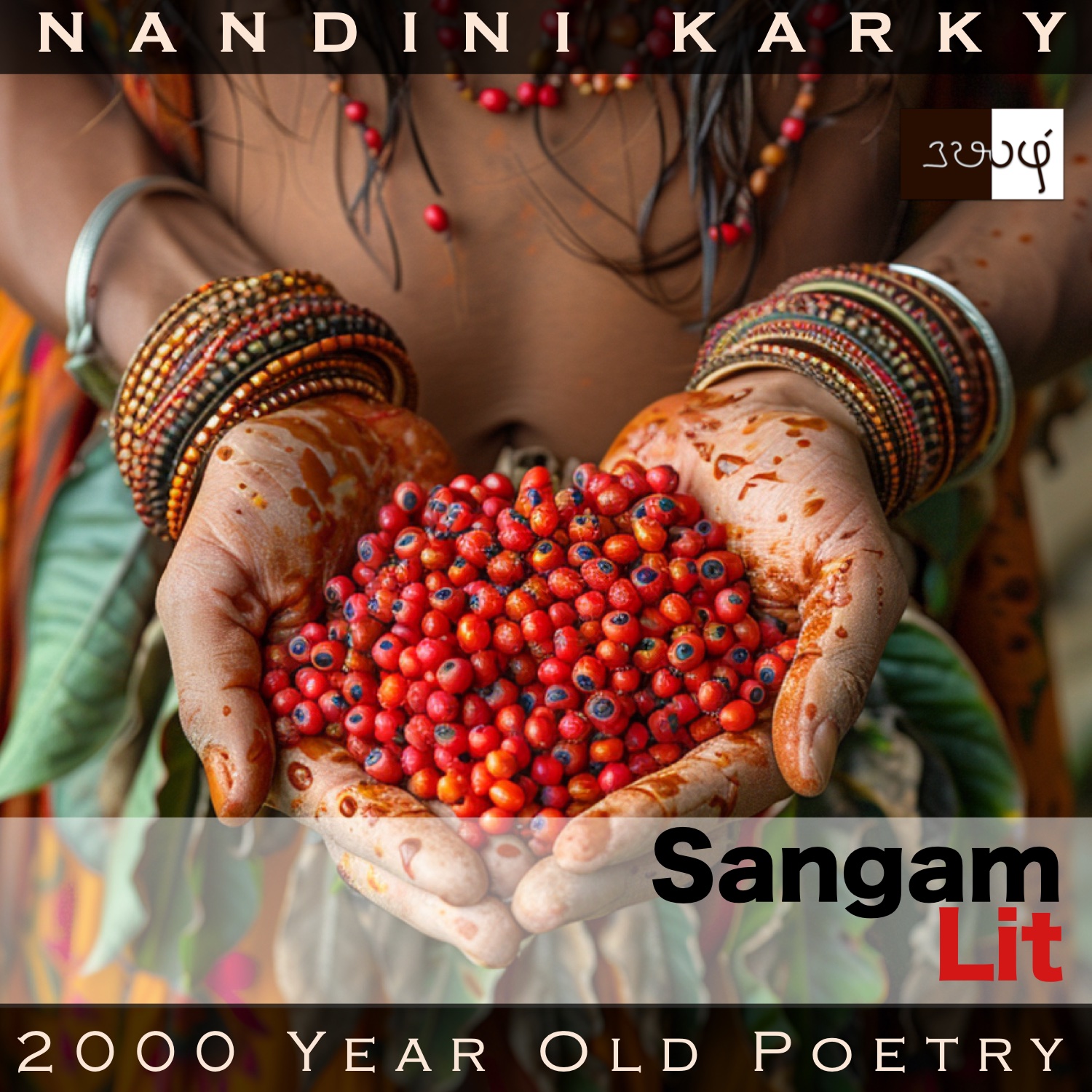Podcast: Play in new window | Download
Subscribe: Apple Podcasts | Spotify | Amazon Music | Android | iHeartRadio | TuneIn | RSS | More
In this episode, we learn of the deciding authority in a woman’s life, as depicted in Sangam Literary work, Puranaanooru 340, penned by the poet Alloor Nanmullaiyaar. The verse is situated in the category of ‘Kaanji Thinai’ or ‘Defence’ and portrays the family of a young maiden.

அணித் தழை நுடங்க ஓடி, மணிப் பொறிக்
குரல் அம் குன்றி கொள்ளும் இளையோள்,
மா மகள்
………………….. என வினவுதி, கேள், நீ:
எடுப்பவெ …………………………………….
……………………..மைந்தர் தந்தை
இரும் பனை அன்ன பெருங் கை யானை
கரந்தை அம் செறுவின் பெயர்க்கும்
பெருந் தகை மன்னர்க்கு வரைந்திருந்தனனே.
Yet again, it’s a verse with many missing lines but with the central theme of a maiden’s marriage. The poet’s words can be translated as follows:
“Making her leaf garment sway, the young maiden runs and gathers those red ‘kundri’ seeds having gem-like spots. Seeing her, you ask whose dark-skinned daughter is she… Please, listen! If they take their weapons…. brothers of the maiden. As for her father, he is determined to give his daughter in marriage only to great and esteemed kings, who fell elephants with huge trunks, akin to dark palm trees, in beautiful battlefields filled with sweet basil!”
Let’s delve into the words. The poet starts by penning the actions of the maiden in question talking about how she runs around with spirit, to pick up those red seeds with black eyes known popularly as ‘prayer beads’ or ‘rosary pea’. A seed, which is said to be highly toxic to humans and animals. While that is so, somehow the plant and even the seed after purification is said to be used in Siddha and Ayurvedic medicine. Returning to the girl, why she’s picking up those striking seeds, the poet doesn’t say, but continues as if he’s addressing a young man who asked the poet who that girl was. He asks this young man to pay close attention and starts saying something about the girl’s brothers taking up weapons, but that thought is lost to time. However, projecting from other such verses, we know the poet must be intending to comment on the fierceness of her siblings. From the brothers, he turns to paint a picture of the father, saying this man is determined to offer his daughter’s hand only to a great king who fells battle elephants which have palm-like trunks in the famous battlefields of then! And thus, the poet ends with an implicit question, ‘Why do you even ask?’ to that young man, implying he stands no chance in winning the said maiden.
A verse which tells us how though a young woman was valued, it was the father and her brothers who seemed to have the final say in this important decision in her life. This is a surprising facet to discover in a society which valued love so much to have dedicated entire volumes of poetry on that theme. Maybe the pursuit of love was for commoners whereas for the daughters of royals a different code was meant to be adhered to!




Share your thoughts...